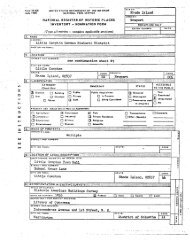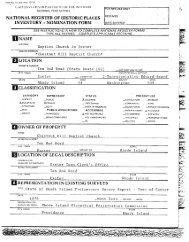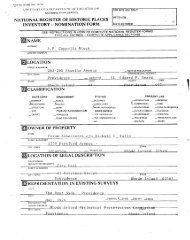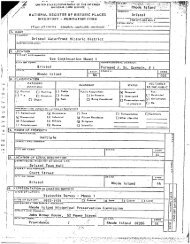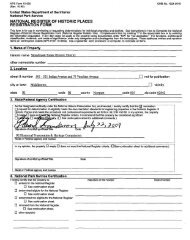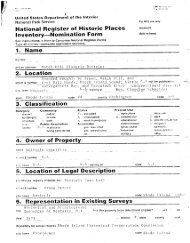1 Dr. Jonathan Prude, Emory University “The Great Transformation ...
1 Dr. Jonathan Prude, Emory University “The Great Transformation ...
1 Dr. Jonathan Prude, Emory University “The Great Transformation ...
Create successful ePaper yourself
Turn your PDF publications into a flip-book with our unique Google optimized e-Paper software.
15stress of mill life by moving back and forth between factory and non-factory berths. As we’venoted, however, others seem to have lingered in millwork, becoming veteran operatives. It’sdifficult to generalize about the attitudes of this group. Some of the men and boys likely hoped toclimb from less to more skilled positions or even to become mill proprietors. And somesucceeded. Others, though, continued to circle within roughly the same positions. And theseveteran operatives seem to have displayed complex blends of autonomy and mutuality. On theone hand, millworkers who might have had been expected to return their wages and ultimatelytheir bodies to the households whence they had started may have become veterans preciselybecause, even more than outworkers, they found that receiving wages instilled a desire to use themoney for themselves and escape control of their birth families. (Indeed, even households withinthe mill villages might face erosion. It was not unknown for youngsters in Slater’s Massachusettsestablishments to receive wage payments, and even to reside, apart from parents employed by thesame factory. On the other hand, balanced against this mounting autonomy, the sharedexperience of being millworkers for protracted periods bred a sense of operative solidarity. Andthis solidarity could prompt group actions. It was rumored that some of the fires destroying millsin these years was the work of disgruntled employees. It was not rumored but plainly the casethat occasionally, in response to wage cuts, millworkers joined together to “turn out”: to strike.And believing that easing their workplace situations required systemic reforms, they now andagain also joined in backing the Ten Hours Movement and political parties supportive ofwageworkers’ rights.But probably the most effective tactic among southern New England textile operativeswas movement. At least by the 1820s, the millworkers I’ve dubbed “veteran” commonly carriedout their millworking careers in factory villages scattered across this region. Admittedly mostpractical in good times when mills found themselves scrambling to fill their rosters to maximizetheir output, workers adopted a practice of purposefully shifting berths, or teasing managerswith the possibility of shifting berths, to improve their separate “bargains”: “...[I]t would not bean object for me to change places,” wrote a prospective Slater hand in 1827, “unles I can receive






